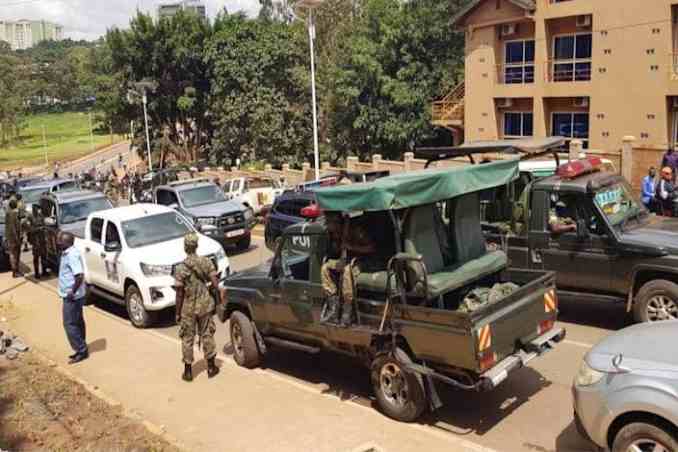Last updated on September 11th, 2021 at 07:58 am
When it comes to policing and justice, even journalists are not spared. As it has been recently discovered that the editor of Daily Monitor, Uganda’s biggest newspapers has been summoned for questioning by police after reporting findings from a BBC investigation into last year’s police killings in Kampala.
The BBC Africa Eye documentary, titled ‘Three Killings in Kampala’ was released on May 31 and with high viewership, it crossed over 600,000 views. The inclusive documentary presented evidence that Ugandan security forces fired indiscriminately at passers-by during a crackdown in the capital Kampala last November. And those firings resulted in killing and injuring unarmed people including several women and children.
The charges were pressed against, Tabu Butagira, editor of the Daily Monitor. He came in limelight first as he dared to ran the story on its front page of the newspaper on May 31. Along with him, Tony Glencross has also been summoned. He is the managing director of Nation Media Group, which owns the Daily Monitor newspaper.
READMORE: African migrant surge in Ceuta
Both the men are suspected of publishing false news, libel, and incitement. In an interview with BBC, Butagira mentioned that the charges are possibly politically motivated and lawyers of the organization are going to fight tooth and nail to prove their innocence. Agreeing with the legal formalities, Tony Glencross said they both will comply with the summons. Although, Tony has contracted coronavirus and is currently self-isolating. This gives him the time of another week to stay at home before he has to appear before the police until next week.
NBS, which is one of the country’s main television networks, usually broadcasts BBC Africa Eye’s investigations, but it played safe this time and excused itself from showing the documentary on Three Killings in Kampala. Though, not via television, but through YouTube and WhatsApp it reached houses in Uganda. This issue escalated very quickly and raised questions on Ugandans for accountability.

